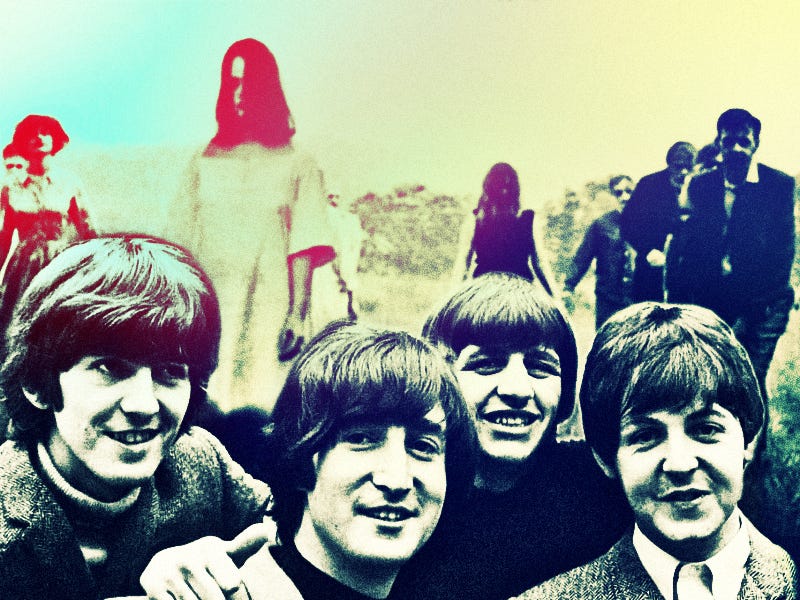The Slow Zombification of the Future
Oceans of new music come out every moment. It’s estimated that more than 100,000 songs are uploaded to Spotify and other streaming platforms each day. This may suggest that music culture is thriving, perhaps more so than any other time in history. But according to philosopher Mark Fisher, such a firehose of new music, if carefully examined, would all indicate how thoroughly music culture is, in fact, slowly being “cancelled.”
“This is the bad news you already know,” Fisher says in a presentation about his book, Ghosts of My Life. “The future has disappeared. In some ways we are trapped within the twentieth century still.” To be in the 21st century, he explains, is to have 20th century culture brought to us by 21st century technology. You might stream music from the cloud and into your ears through the latest Apple earbuds, but you’re still listening to a genre of music that was pioneered decades ago.
In the modern age, we no longer let forms or styles die. And “that’s not good,” Fisher claims. “We’re assailed on all sides by zombie forms which persist forever. By revivals, anything can come back. There’s an excessive tolerance for the archaic.”
In terms of music culture, Fisher observes that music hasn’t really progressed much since the turn of the century. Music does continue to evolve, but only in subtle changes that aficionados notice. The general public is no longer surprised or shocked by a new development. This is distinct from the past when radical new forms organically emerged—from early blues to rock’n’roll to disco to grunge to hip hop, etc.
Instead of the culture of music itself changing, the technology that delivers the music has changed. And part of that change is that we now have access to all the music of the past. It’s always there. When we’re not directly listing to old music, we’re inadvertently doing so by listening to new artists who are iterating upon sounds or genres that were born in the past century.
This fact about music is true, Fisher argues, with all artforms, and with culture more broadly.
Mark Fisher died in 2017. Since that time, with the rise of generative AI, his conception of how “the future is cancelled” has become even more prescient.
ChatGPT subsists on the vast amount of information that humans have posted to the internet. It uses a sophisticated kind of computer magic to feed us back to ourselves. To some extent, ChatGPT will decrease the need for people to write original articles. Future authors will use ChatGPT (or other AI tools) to draft articles, and then these articles will in the future be crawled by ChatGPT. Eventually, ChatGPT could, conceivably, be regurgitating its own content more than content originally (fully) authored by humans.
I previously worked as an editor at FindLaw.com. I oversaw a team of writers who put out close to 100 short articles per week. Today, there’s no chance the company still employs the same number of writers to do this job. They may have no writers, only an editor. This may not be true, but it’s absolutely possible today. In the future, there won’t even be any question about whether or not this is happening. It’ll be taken for granted.
Same with other artistic mediums. AI generated art and music is everywhere. It’s practically inescapable. Anyone reading this today, of course, will see nothing but old news in this statement. But Mark Fisher would find this utterly astounding. Particularly in light of his bleak view of 21st century culture.
Recall Fisher’s conception of the 21st century, which is “20th century culture brought to us by 21st century technology.” Following the rise of generative AI, 21st century technology no longer simply presents us with 20th century culture; it also cancels any hope for humans to create their way out of this situation. How could we, when what we “create” is no longer even created by us, but by a machine mind that has been trained by predominantly 20th century content and which cannot really generate original ideas (not yet, at least)?
Given this, the current trajectory is that the future won’t be “cancelled.” It will itself be a zombie form, even before it exists.



The future is just a rehash and re-popularizing of the ideas fleshed out in the 20th century. How many people quote Baldwin or "The Open Veins of Latin America" as if it's some revelatory news when its 50 years old? How many commercials and movies uses nostalgia? Movies such as "Guardians of the Galaxy" and "Deadpool" come to mind as Marvel has found formulaic success in these models. Thanks for the good read!